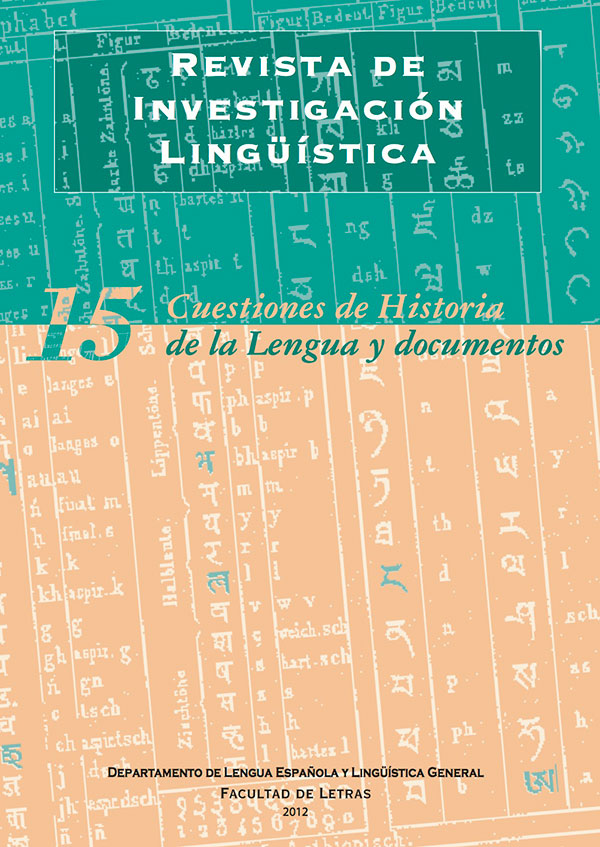«Se retiró la Agustina hecha un veneno»: «artículo determinado + antropónimo» en documentación judicial del siglo XVIII
Resumen
En este artículo se estudia la estructura «artículo determinado + nombre propio de persona» (el Antonio) en un corpus de documentos del Reino de Granada (Granada, Málaga, Almería) del siglo XVIII. El corpus está formado por veintiuna declaraciones de testigos pertenecientes a diez juicios distintos. En los estudios previos de carácter diacrónico, se afirma que esta estructura sobreespecificada se emplea para ofrecer valoración negativa sobre el referente humano. Queremos comprobar si los ejemplos de nuestro corpus sirven también para expresar conceptualizaciones negativas. Además de la pauta «artículo + nombre propio», analizamos otras estructuras con antropónimo, que se emplean para hacer referencia en la narración a los protagonistas: «el dicho + nombre propio» (el dicho Juan Pérez), nombre propio escueto (Juan Pérez), aposición explicativa (Juan Pérez, alcalde del lugar) y aposición identificativa (el abogado Juan Pérez).Descargas
-
Resumen359
-
PDF469
Las obras que se publican en esta revista están sujetas a los siguientes términos:
1. El Servicio de Publicaciones de la Universidad de Murcia (la editorial) conserva los derechos patrimoniales (copyright) de las obras publicadas, y favorece y permite la reutilización de las mismas bajo la licencia de uso indicada en el punto 2.
2. Las obras se publican en la edición electrónica de la revista bajo una licencia Creative Commons Reconocimiento-NoComercial-SinObrasDerivadas 4.0 (texto legal). Se pueden copiar, usar, difundir, transmitir y exponer públicamente, siempre que: i) se cite la autoría y la fuente original de su publicación (revista, editorial y URL de la obra); ii) no se usen para fines comerciales; iii) se mencione la existencia y especificaciones de esta licencia de uso.
3. Condiciones de auto-archivo. Se permite y se anima a los autores a difundir electrónicamente las versiones pre-print (versión antes de ser evaluada) y/o post-print (versión evaluada y aceptada para su publicación) de sus obras antes de su publicación, ya que favorece su circulación y difusión más temprana y con ello un posible aumento en su citación y alcance entre la comunidad académica. Dulcinea: verde. OPF.









